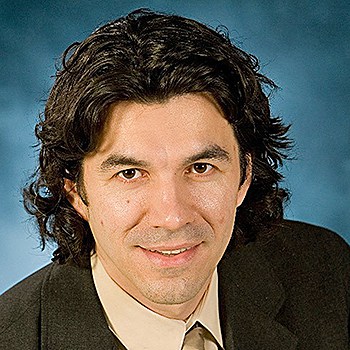
Linic, global delegation release solar energy research recommendations
Coral reefs are losing color and the ability to fight disease. Glaciers are melting and sea levels are rising at accelerated rates, spurring increased flooding along coastlines.

Coral reefs are losing color and the ability to fight disease. Glaciers are melting and sea levels are rising at accelerated rates, spurring increased flooding along coastlines.
Coral reefs are losing color and the ability to fight disease. Glaciers are melting and sea levels are rising at accelerated rates, spurring increased flooding along coastlines.

Scientific evidence links these environmental—and in some cases, irreversible—changes to increasing amounts of carbon dioxide collecting in the Earth’s atmosphere. Scientists are urgently searching for ways to shift the world’s reliance from fossil fuels like coal and oil, which release carbon dioxide and other heat-trapping gases when burned, to renewable energy sources.
Led by University of Michigan Professor of Chemical Engineering Suljo Linic, five U.S. chemists met in September 2017 in Dalian, China, with their counterparts from China, Germany, Japan, and the United Kingdom to assess the current state of solar energy science and technology.
Increasing the world’s solar energy capacity is key to reducing carbon dioxide emissions and ultimately, removing it from the atmosphere, according to recommendations the global delegation jointly published in a new white paper.
However, existing research priorities must pivot.
“To compete with fossil fuels, solar energy devices must become cheaper and easier to manufacture while also becoming more efficient. This will require new materials, new module designs, and a better understanding of the
fundamental processes behind solar energy,” says Linic.
Among the recommendations are:
The American Chemical Society (ACS) selected Linic and four other leading chemists to represent the United States at the 7th Chemical Sciences and Society Summit (CS3), which was held in China in September 2017.
The funding agencies and chemical societies of the five participating countries developed the CS3 series to unite leading researchers in the chemical sciences. Participants identify how chemical research can contribute to key societal challenges, such as climate change.
The U.S. delegation included: Suljo Linic (University of Michigan), Harry Atwater (California Institute of Technology), and Gordana Dukovic (University of Colorado at Boulder), Vivian Ferry (University of Minnesota), and Jerry Meyer (University of North Carolina). The U.S. National Science Foundation supported the delegation.